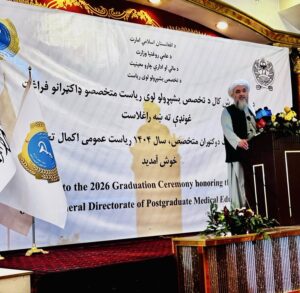Statement
Afghan youths face various social, economic, and educational challenges that can significantly impact their goals and aspirations in life.
This survey conducted by Salam Watandar, aims to explore the level of goal-setting among young people, identify potential reasons for a lack of clear objectives, and examine the relationship between these factors and their educational, economic, and social conditions.
Given that youth are the primary force for a country’s development and progress, understanding their goals and the obstacles they face is crucial for formulating more effective policies and support programs. This study seeks to answer the question: What goals do Afghan youths have in their lives, and what factors influence the formation or lack thereof of these goals?
Background
While there have been limited reports and academic studies conducted by various organizations regarding the goals of young people in their lives, but no specific statistical research has been done through the media on this topic. However, Salam Watandar’s survey aims to address this gap.
Main questions
- What percentage of young people have clear goals in their lives?
- What are the main goals of young people for their lives?
- What factors contribute to some young people not having clear goals in their lives?
Survey objectives
- Examining the status of young people in terms of having goals.
- Identifying the factors that cause young people to lack clear goals.
- Understanding the reason why some young people do not have goals in their lives.
- Providing statistics on young people who have goals in their lives and those who do not.
Survey timeline
This survey launched on May 23 and concluded on June 4, 2024.
Survey challenges
During conducting this survey, following matters have been among the main challenges:
- Most young people, especially girls, were unwilling to participate in the survey.
- Many young people could not differentiate between aspirations and goals.
- Many young people lacked the motivation to respond to questions related to this survey.
Survey variables
Life, goal, youths, and future are among the important variables in this survey.
Summary of the survey report
In this survey conducted by Salam Watandar, 305 young individuals were interviewed across 12 provinces of Afghanistan.
Survey’s findings reveal that over 60.9% of these youths have specific goals in various areas of their lives. In contrast, 39.1% have abandoned their goals due to a lack of hope for the future, considering themselves aimless.
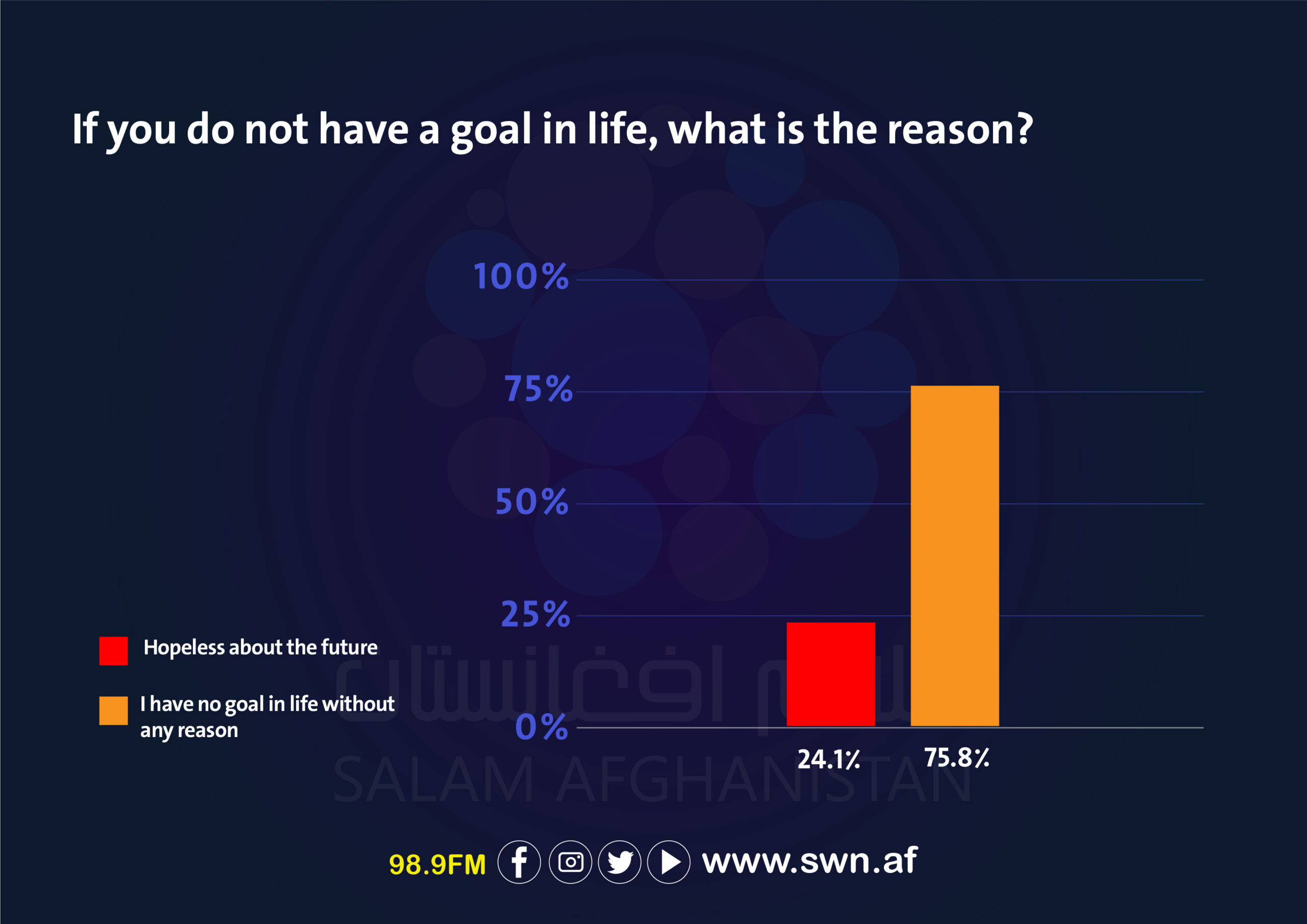
The survey participants span different age groups, with the largest group being those aged 20 to 25 years, making up 45.9%.
Participants also vary in educational levels, with the majority, 42.6%, having primary education, and 7.5% being illiterate.
Women constituted 58% of the survey participants, while men made up 42%.
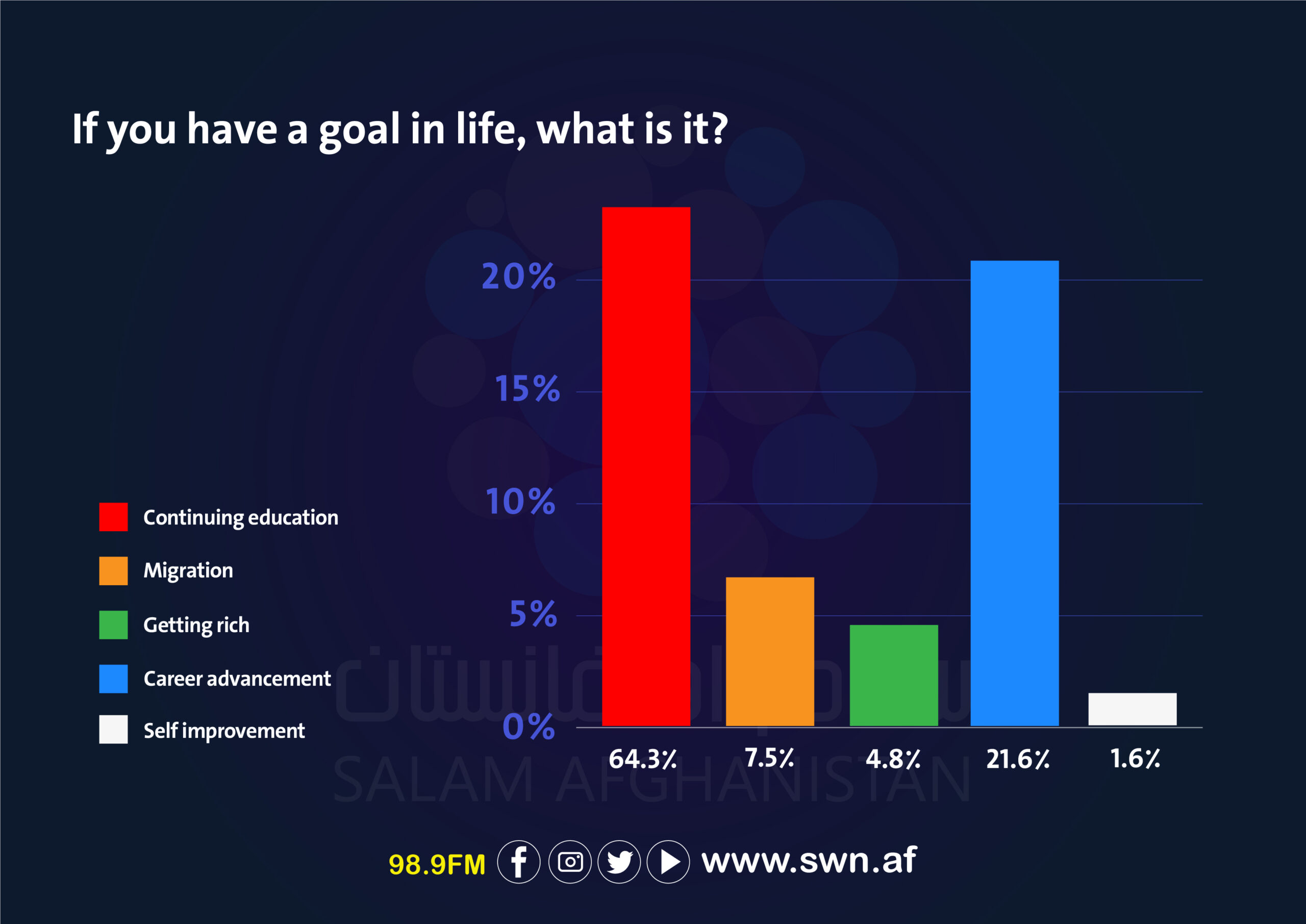
This survey was conducted in 12 provinces, with Jowzjan having the highest participation at 19.34%, and Takhar having the lowest at 4.3%.
Comprehensive report
Salam Watandar conducted a survey among 305 young individuals across 12 provinces of Afghanistan to assess their goal-setting in life.
In this survey, Jowzjan province had the highest participation rate at 19.34%, however, Takhar province had the lowest participation rate at 4.3%.
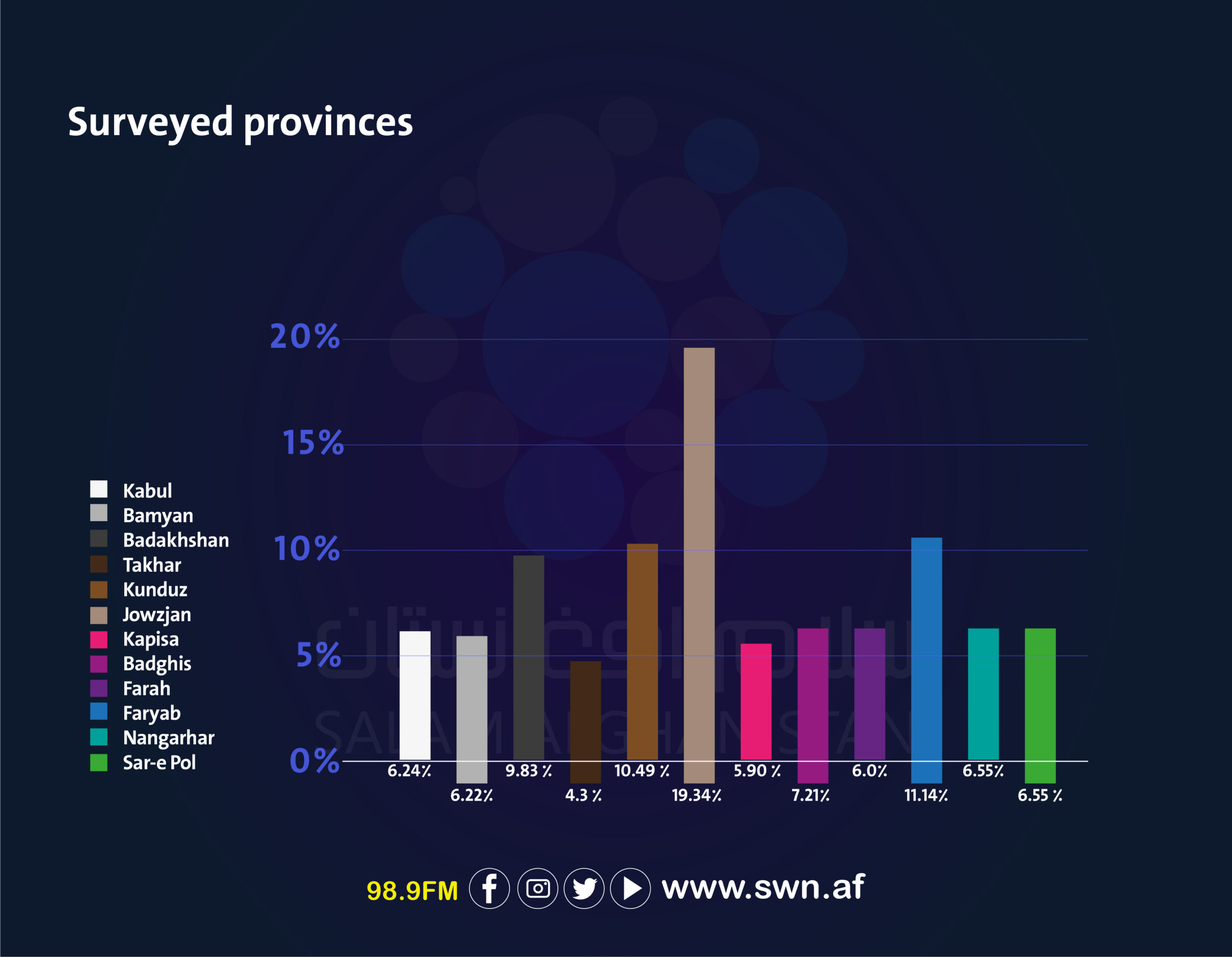
Among the survey participants, 58% of the respondents were women and other 42% were men.
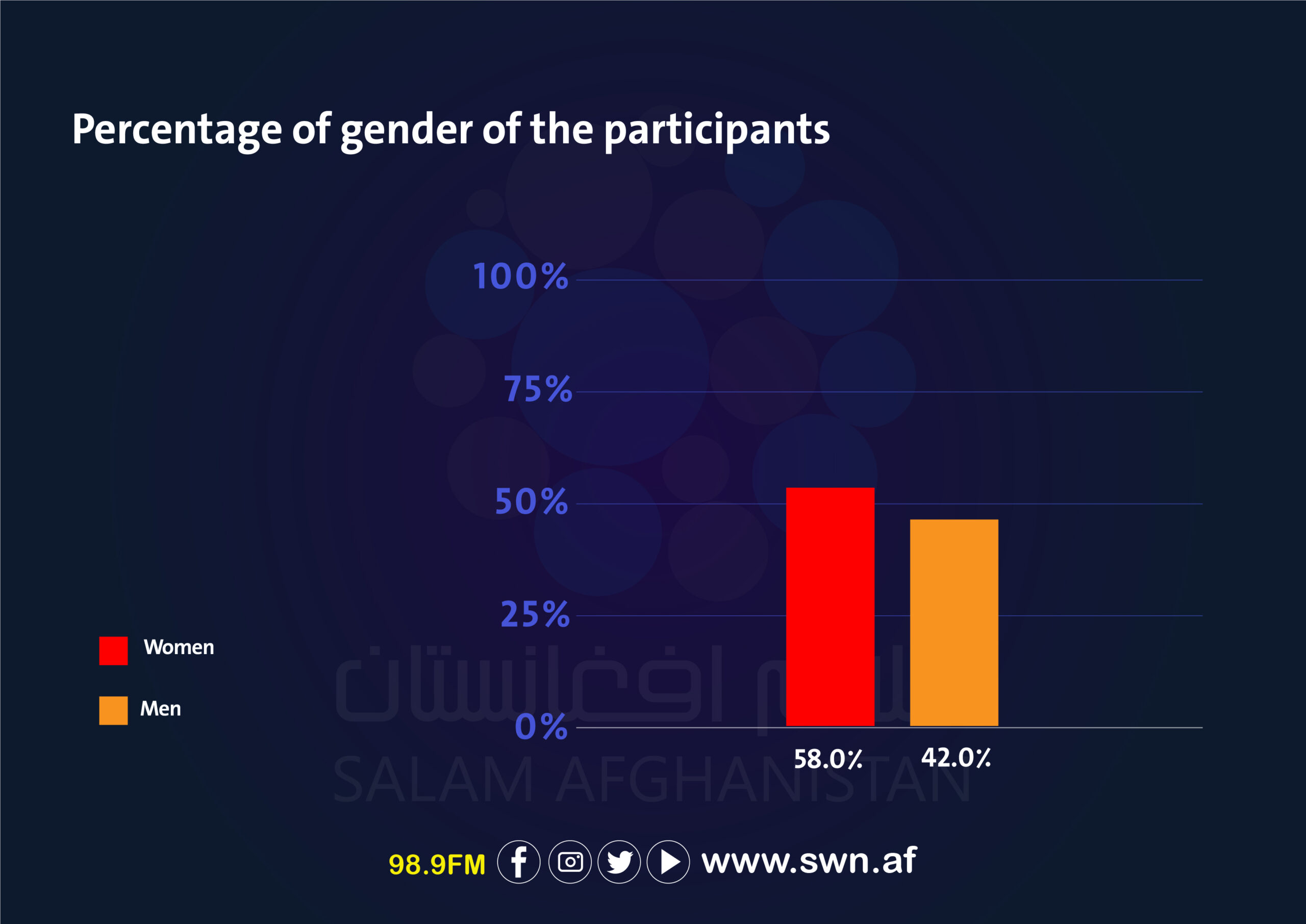
In this survey, the education level of the participants has also been examined. Out of 305 young individuals, 42.6% were students, 32.7% held a bachelor’s degree, 17% were high school graduates, and other 7.54% were illiterate.
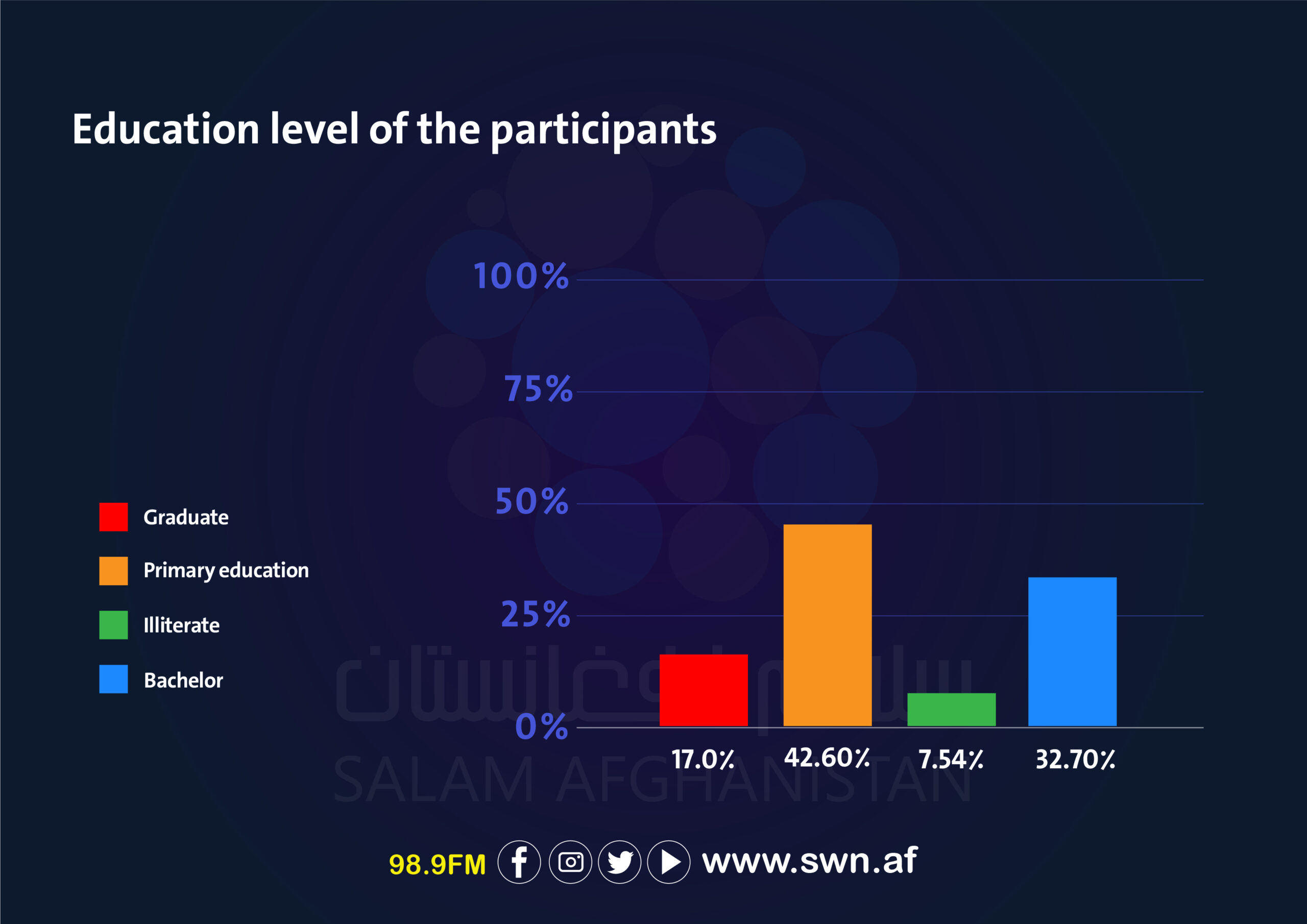
In the survey, 30.16% of the participants were aged between 15 and 20 years old, while 45.9% of respondents fell within the age bracket of 20 to 25 years. Additionally, 13.11% were in the age group of 25 to 30 years, with 10.81% falling between 30 and 35 years old.
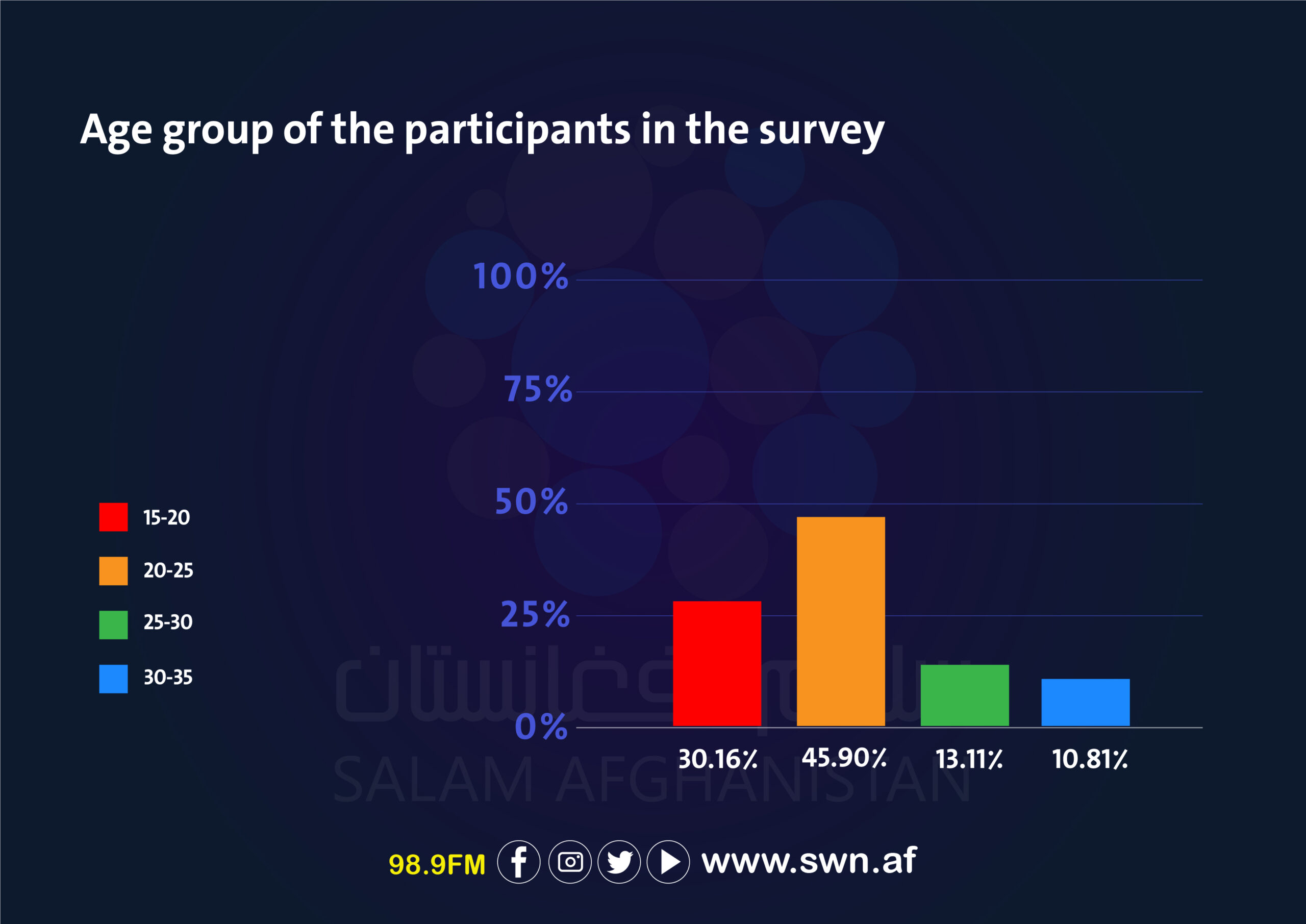
Conclusion
The survey results indicate that the majority of young Afghans have clear goals in their lives, reflecting a strong desire to improve their educational and employment situations. However, a significant percentage of young people live without specific goals due to a lack of hope for the future.
These findings highlight the urgent need to create more opportunities and provide social and economic support to young people to increase their optimism and encourage goal-setting. Focusing on education and enhancing job skills can play a crucial role in reducing aimlessness and boosting motivation and hope among the youths.
Recommendations
Implementing the following recommendations can help improve goal-setting among young people and provide a conducive environment for their growth and progress:
- Providing scholarships and educational programs for youths, especially in remote areas, and expanding vocational training centers to enhance young people’s access to better education.
- Establishing training and apprenticeship programs relevant to the job market and creating job opportunities for youths through collaboration with the private and public sectors.
- Offering career and educational counseling services in schools and universities to assist youths in determining suitable career and education goals and paths, and developing mentoring programs to connect youths with successful individuals in various fields.
- Developing and disseminating educational and informational resources to help youths in goal-setting and planning for their future, and creating online platforms and digital libraries to provide access to educational resources.
- Launching awareness campaigns and incentive programs to encourage youths to set and pursue goals, and providing support programs such as financial assistance and counseling to youths facing challenges in achieving their goals.
- Implementing developmental programs to contribute to the improvement of the country’s social and economic situation, giving young people hope for a better future, and enhancing the quality of life while creating safe and stable environments to reduce feelings of aimlessness and increase motivation among youth.



